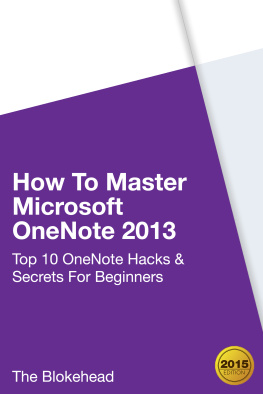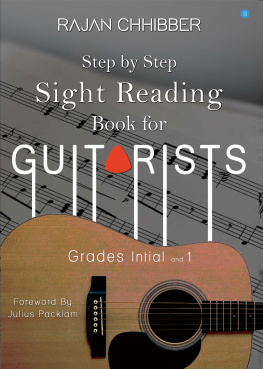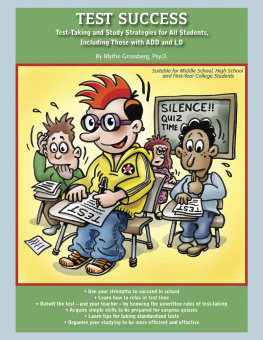Note Taking Skills For Everyone: Learn the strategies of effective note taking in order to earn maximum grades today!
By Vernon Macdonald
Copyright 2014 Vernon Macdonald
Discover these other titles by Vernon Macdonald:
Improve Your Memory Today! Discover the Memory Improvement Tips and Study Skills of the Ancient Greeks
Smashwords Edition License Notes
This ebook is licensed for your personal enjoyment only. This ebook may not be re-sold or given away to other people. If you would like to share this book with another person, please purchase an additional copy for each recipient. If youre reading this book and did not purchase it, or it was not purchased for your use only, then please return to the applicable ebook store and purchase your own copy. Thank you for respecting the hard work of this author.
Disclaimer
This document is geared towards providing exact and reliable information in regards to the topic and issue covered. The publication is sold with the idea that the publisher is not required to render accounting, officially permitted, or otherwise, qualified services. If advice is necessary, legal or professional, a practiced individual in the profession should be ordered.
- From a Declaration of Principles which was accepted and approved equally by a Committee of the American Bar Association and a Committee of Publishers and Associations.
In no way is it legal to reproduce, duplicate, or transmit any part of this document in either electronic means or in printed format. Recording of this publication is strictly prohibited and any storage of this document is not allowed unless with written permission from the publisher. All rights reserved.
The information provided herein is stated to be truthful and consistent, in that any liability, in terms of inattention or otherwise, by any usage or abuse of any policies, processes, or directions contained within is the solitary and utter responsibility of the recipient reader. Under no circumstances will any legal responsibility or blame be held against the publisher for any reparation, damages, or monetary loss due to the information herein, either directly or indirectly.
Respective authors own all copyrights not held by the publisher.
The information herein is offered for informational purposes solely, and is universal as so. The presentation of the information is without contract or any type of guarantee assurance.
The trademarks that are used are without any consent, and the publication of the trademark is without permission or backing by the trademark owner. All trademarks and brands within this book are for clarifying purposes only and are the owned by the owners themselves, not affiliated with this document.
Table Of Contents
Why Should I Take Notes?
Taking notes is perhaps the most effective way to understand and remember new material, whether from a lecture, a presentation, or a textbook. Even if you have an excellent memory, its nearly impossible to remember every important thing your lecturer or textbook is trying to convey. By taking notes, you are much more likely to remember the information a week laterin fact, as reported in a 1970 study by Michael Howe, youre seven times more likely to be able to recall the information than students who do not take notes.
Besides simple recall, taking notes can be beneficial in other ways. Note-taking can help you realize connections between the new information and information youve already gone over. It can also aid you in making absolutely sure you understand the material, which will be discussed more in later chapters.
While all note taking generally serves the same purposeto help you understand and retain new informationit can be done in many different ways. It all comes down to figuring out what works best for you as a student. While the upcoming chapters will go over many different styles of note-taking, this book is certainly not an all-inclusive list. Feel free to use and adapt these methods to best suit your needs!
How Should I Get Started?
One of the most important steps to complete before taking notes is to decide if youre going to handwrite them or type them. There are many advantages and disadvantages to both. For example, typed notes are generally easier to read than handwritten ones, and there are fewer pieces of paper to keep track of and maintain. One disadvantage of a laptop, though, is that you either have to hope the charge on it lasts, or find an outlet. However, finding an outlet can be a hassle as there often arent outlets available in classroom settings. Other drawbacks of using a laptop are the distractions that come along with a computer and the fact that some notes, such as mathematical equations, can be harder to type on a computer. Just like with choosing which method to use, choosing whether to write or type your notes is a personal preference.
If you do choose to type your notes, there are several free or cheap programs that can help you organize and review your notes. A few of these include Evernote, Onenote, Springpad, and Simplenote. Many of these allow you to tag your notes or separate them into different notebooks. Keep in mind, though, that some of these require the internet to run. Otherssuch as Evernote and Onenotehave additional features if a web connection is available, but work just as well without one.
Once you decide how to record your notes and the time comes to actually take them, you have to be able to recognize key indicators that something is important and should be included in your notes. These indicators can range from explicit statements such as This is important, to the not-so-obvious firstly/secondly. When listening to your lecturer, pay attention to the intonation of their voice; if they begin speaking slower or as if they are dictating, it is most likely something you need to know and should record. It is also a good idea to record any definitions and any phrases your lecturer repeats.
While in a lecture, you also need to pay attention to a number of non-verbal cues. Most lists, any information that you remember reading in your textbook, and any concepts gone over in your homework are good topics to include in your notes. In addition, if your lecturer is writing something on a whiteboard or chalkboard, it should be included in your notesif your lecturer is going to the trouble to write it down themselves, chances are its worth your while, too.
As calculated in a study conducted by Franoise Boch and Annie Pialat, students write at a rate of less than one word per second, while lecturers generally dictate at a rate of around two to three words per second. This means that along with interpreting what needs to be included in your notes, you also need to know when not to include something in your notes. If your lecturer makes an aside or if they begin talking quickly, it typically indicates that it is not one of the main points of the lecture and can probably be left out of your notes.
In addition to understanding what to write down, you need to ensure you are actively listening. Dont get overwhelmedWhat am I supposed to be writing? Am I missing the key points?; instead, remain calm and remember to pay attention to your lecturers verbal and nonverbal cues. Ensure you understand each point as you are writing it down. If you pick up a cue that something is important, but you arent sure you understand the topic, write it down and put a question mark next to it or in the margins. Ask the lecturer about it at a convenient time, and if necessary add a few notes to clarify it for when you review.
After deciding how you are going to record your notes and understanding the cues that something should be included in your notes, it is time to choose how you are going to format your notes. There are countless methods for note taking, and many people create their own personalized way of taking notes that can be a combination of different methods. Explained in the next chapters are several different note taking methods to help you get started.











